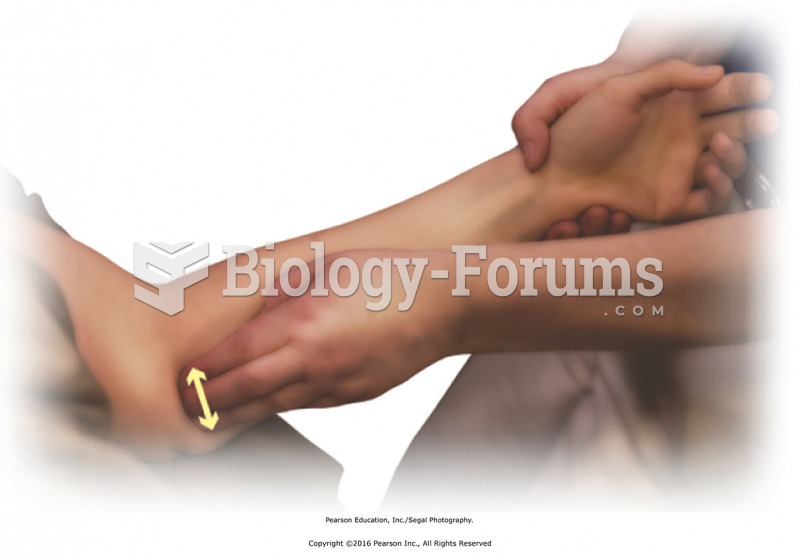This topic contains a solution. Click here to go to the answer
|
|
|
Did you know?
Patients should never assume they are being given the appropriate drugs. They should make sure they know which drugs are being prescribed, and always double-check that the drugs received match the prescription.
Did you know?
The first war in which wide-scale use of anesthetics occurred was the Civil War, and 80% of all wounds were in the extremities.
Did you know?
Human kidneys will clean about 1 million gallons of blood in an average lifetime.
Did you know?
Thyroid conditions cause a higher risk of fibromyalgia and chronic fatigue syndrome.
Did you know?
The term pharmacology is derived from the Greek words pharmakon("claim, medicine, poison, or remedy") and logos ("study").
 Relationship between fruit radius and beak length in populations of native and introduced species of
Relationship between fruit radius and beak length in populations of native and introduced species of
 Apply friction to tendons at the elbow with thumb or fingers. Add stripping effleurage along length ...
Apply friction to tendons at the elbow with thumb or fingers. Add stripping effleurage along length ...





